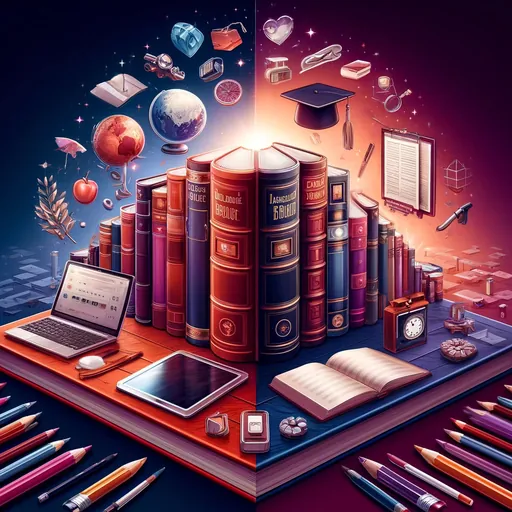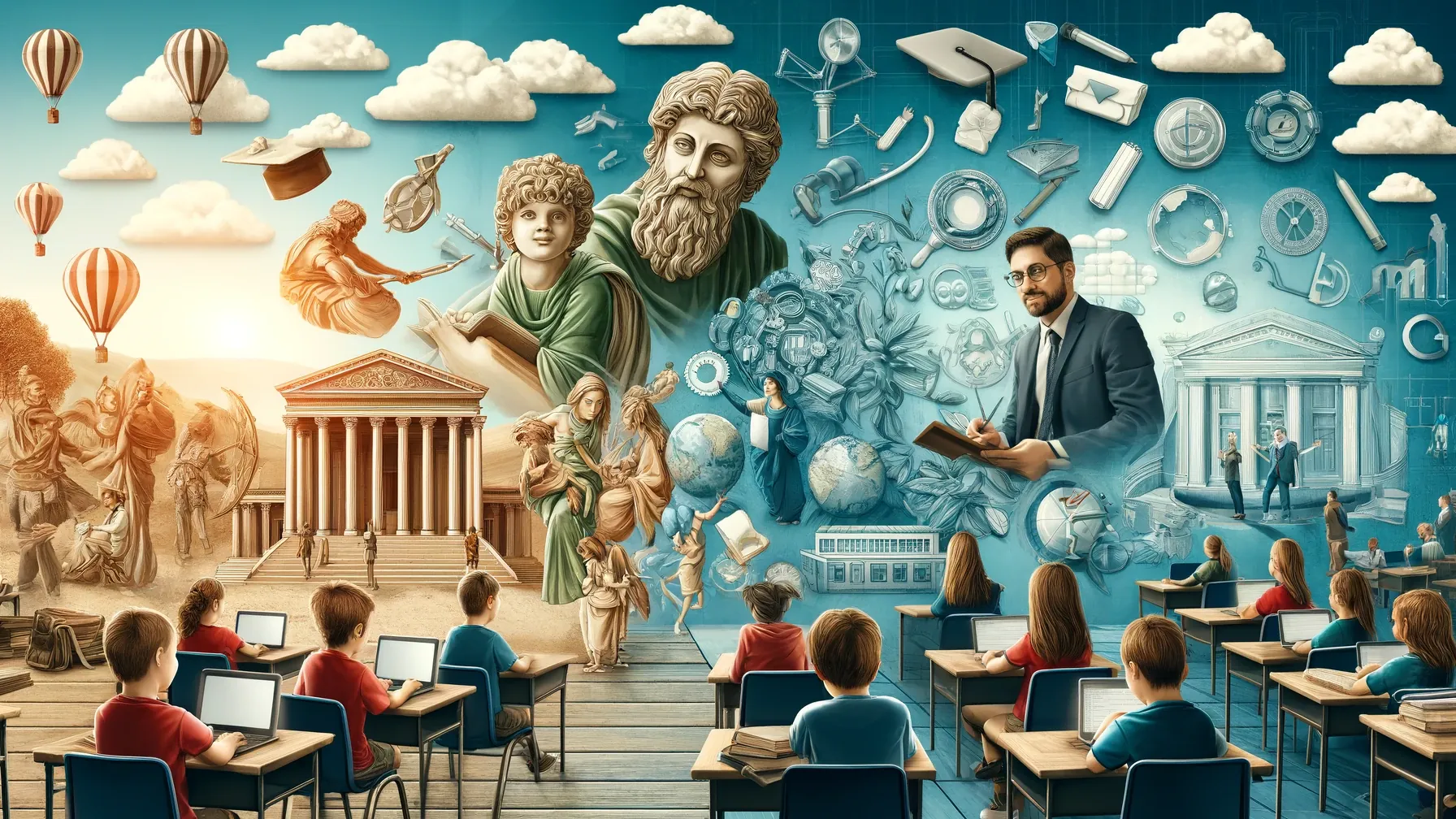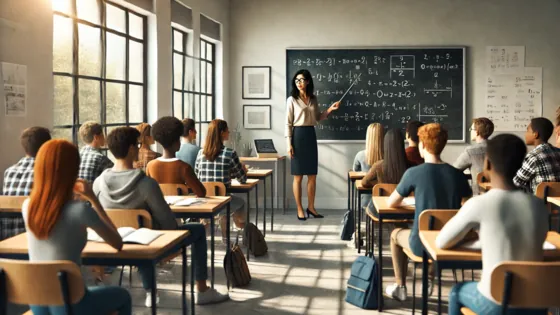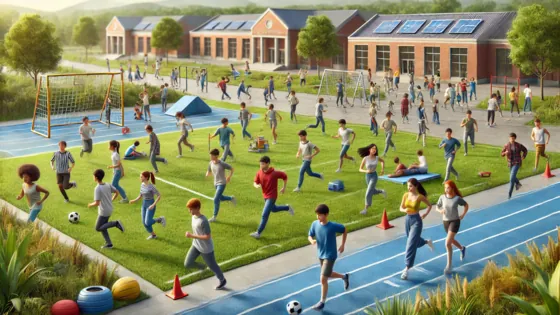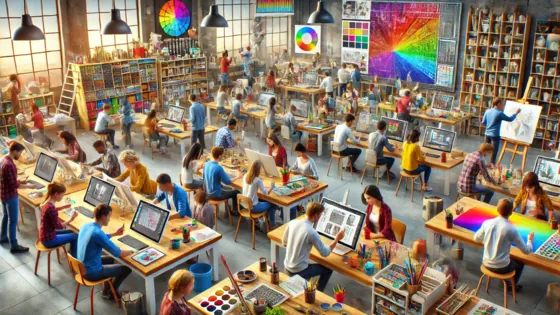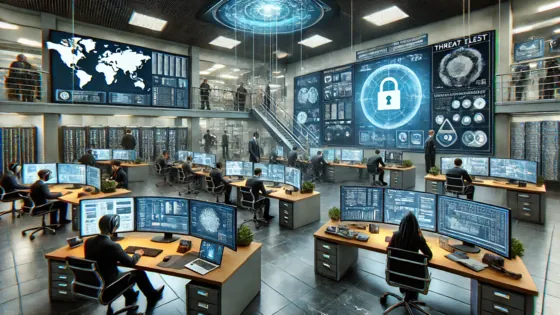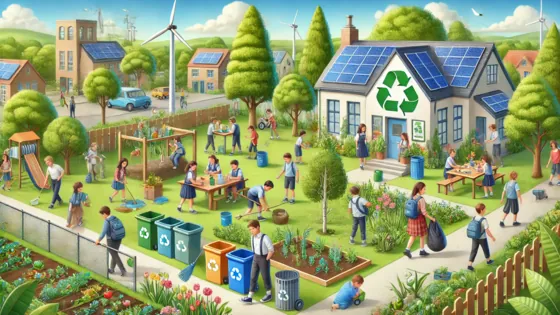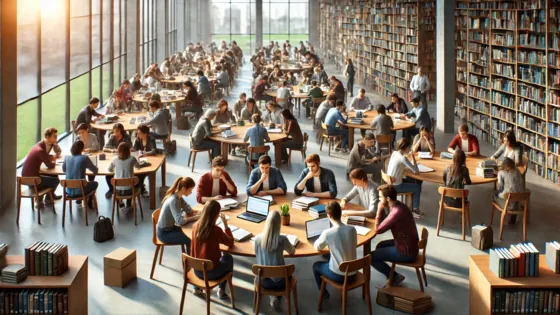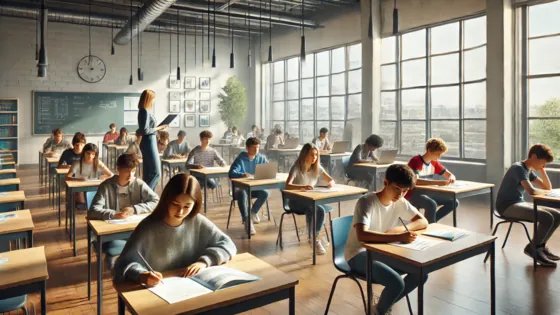In an era marked by rapid technological advancement, globalization, and evolving socio-cultural trends, modern education emerges as a pivotal force in shaping the future of society. The swift transformations in the economy and society necessitate an education that not only imparts knowledge but also fosters critical thinking, creative abilities, and social skills. Embarking on a new stage of its development, modern education must adapt to the challenges of the contemporary world, integrating new technologies and teaching methodologies, while striving for greater accessibility and quality.
Education in Ancient Civilizations
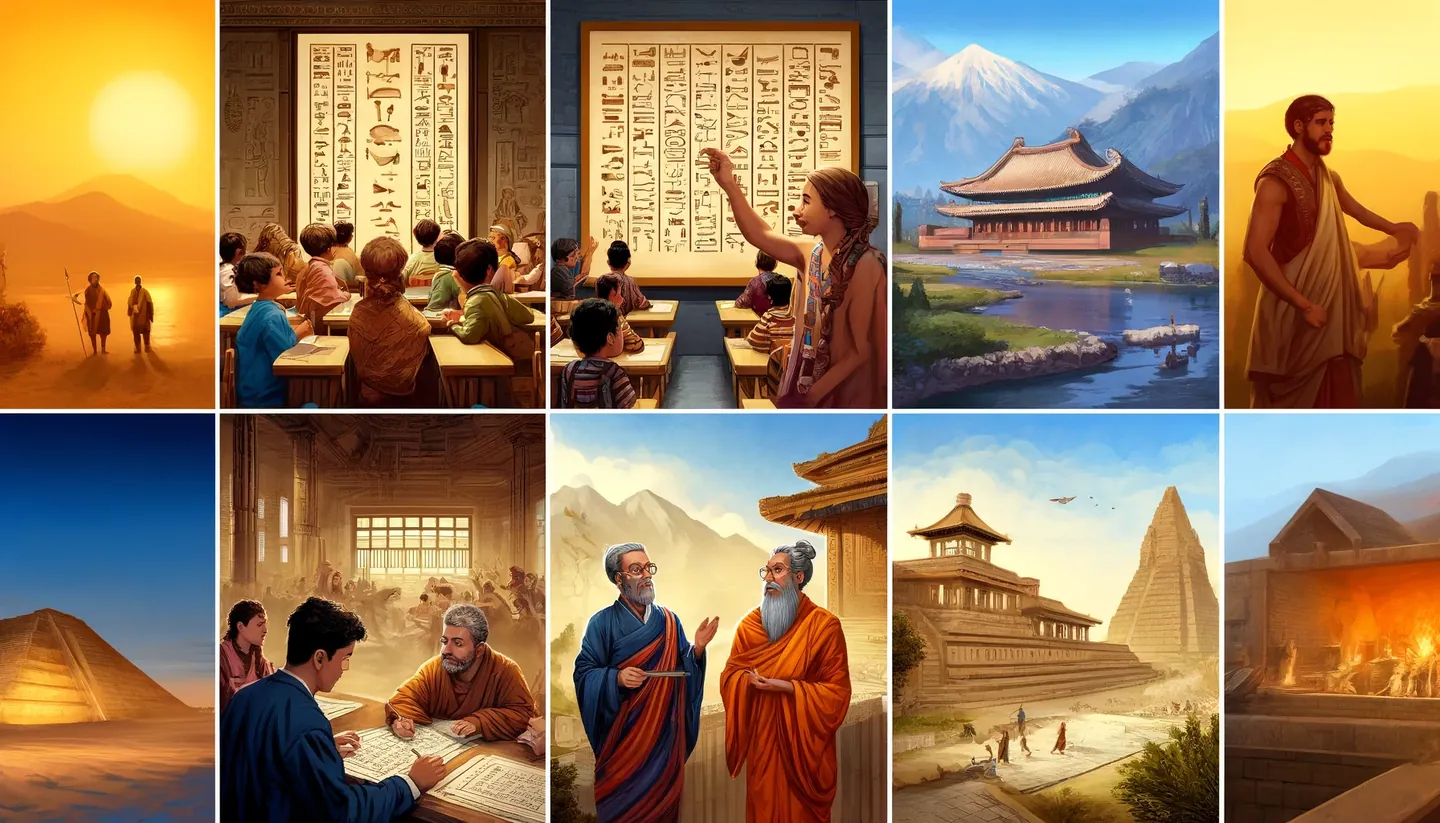
Ancient Egypt is celebrated for its scholars and intricate educational systems. Schools were established where children received instruction in reading, writing, arithmetic, and religious doctrines. Education in Egypt was not restricted to the elite; it was available to the general populace, promoting the dissemination of knowledge and ideas throughout society.
Mesopotamia, situated between the Tigris and Euphrates rivers, is notable for its pioneering educational institutions. The earliest known writing systems emerged here, and schools associated with temples and palaces provided literacy education to young individuals. Mesopotamian scholars made significant advances in fields such as mathematics, astronomy, and medicine, leaving a rich intellectual legacy.
Ancient China is known for its unique educational framework that included teaching Confucian philosophy, writing, and governance. Schools were organized according to social hierarchy, and education was essential to the development of the country's bureaucratic system.
India had a profound educational tradition, especially through the guru-shishya system, where students were instructed by knowledgeable mentors. Education in India was closely linked with religious and philosophical teachings and was often conducted in temples and monasteries.
These ancient civilizations not only established foundational educational systems but also made substantial contributions to the advancement of scientific knowledge and technological innovation. Their educational practices and achievements have left a lasting influence on modern education.
Education in the Middle Ages and Renaissance
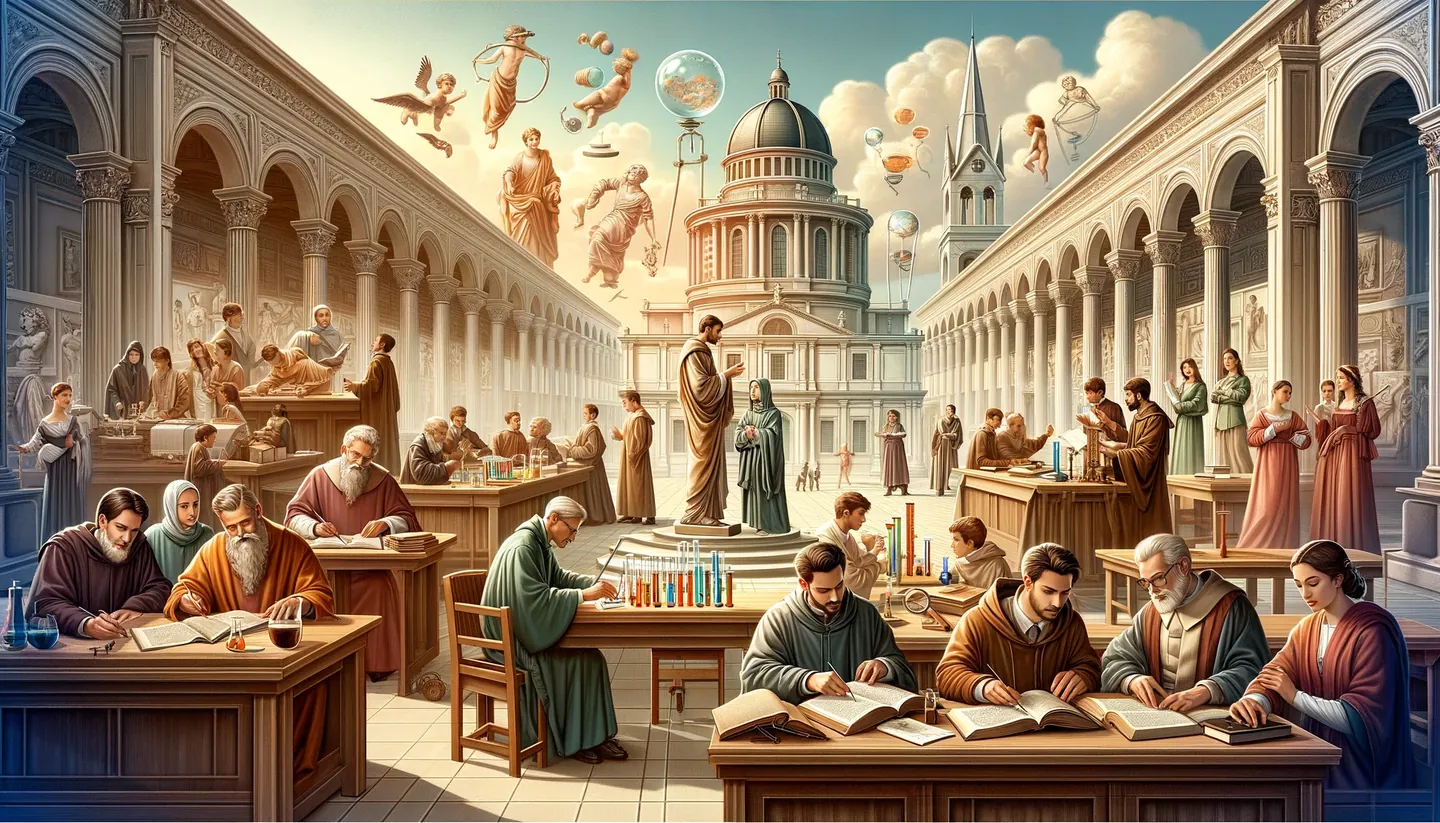
During the Middle Ages, education was predominantly controlled by the church. Monasteries played a vital role in preserving and transmitting knowledge, often offering schooling to both monks and laypeople. The curriculum was primarily centered on theology, philosophy, and Latin. This period saw education largely accessible only to the nobility, creating significant disparities in educational opportunities.
However, towards the latter part of the Middle Ages, the Renaissance emerged, heralding a renewed interest in education and culture. The Renaissance, meaning "rebirth," was marked by a revival of classical Greek and Roman heritage and the rise of humanistic ideas. This era experienced considerable growth in art, science, and education.
A defining feature of the Renaissance was the rise of humanistic education. Humanists advocated for teaching the values of humanity, self-improvement, and understanding the world through the study of classical literature, history, and philosophy. This approach laid the foundation for modern humanities.
The Renaissance also advanced the notion of education for all social classes. New schools, academies, and universities were established, admitting not only the aristocracy but also offering education to a broader population. This facilitated the spread of knowledge and intellectual development across society.
The Modern Era and Industrial Revolution
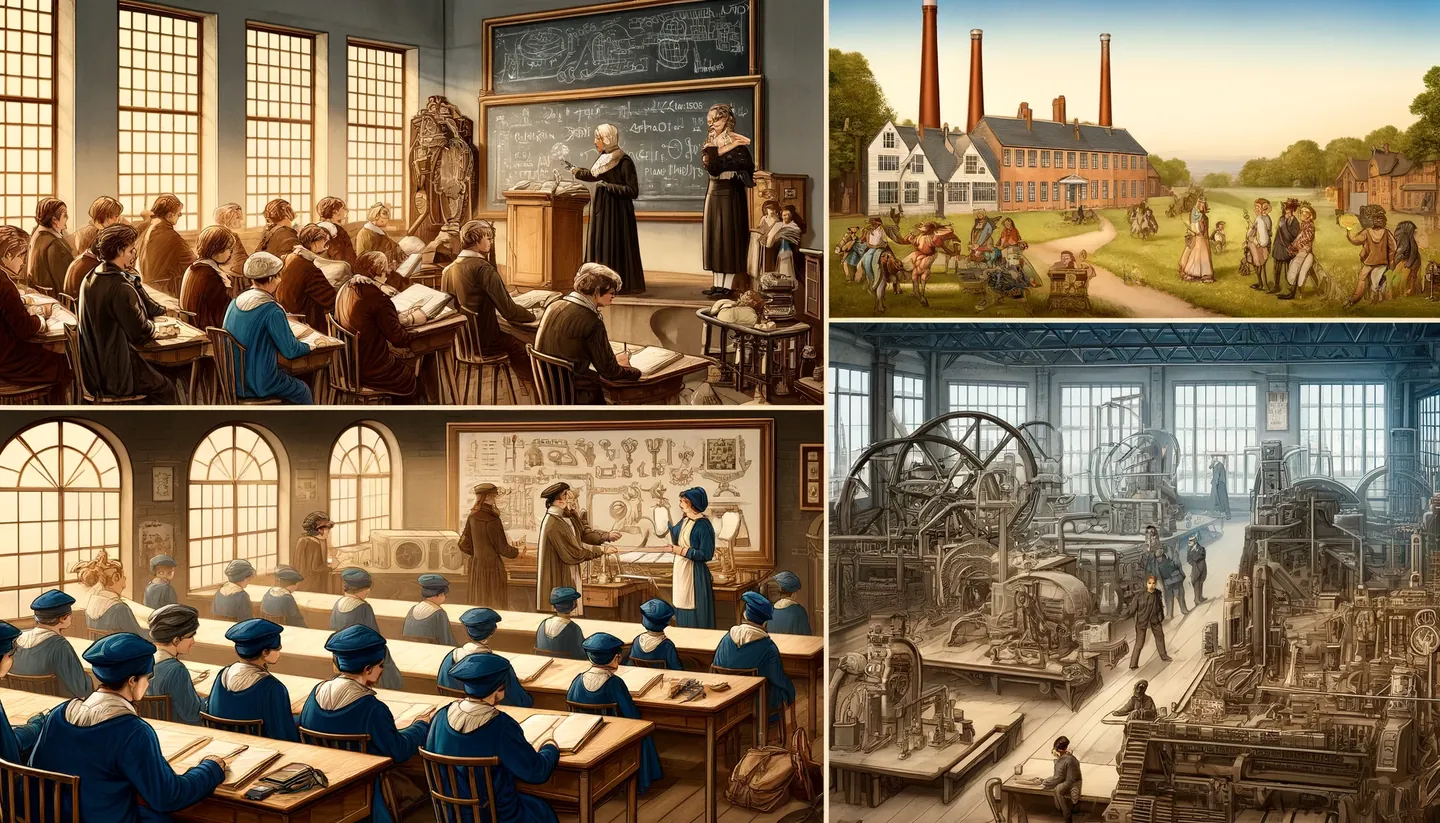
The modern era represents a period of significant educational expansion. By the late 17th century, the first public schools began to appear in Europe, offering a diverse curriculum that included mathematics, natural sciences, literature, and languages. Education became increasingly accessible to various social strata, promoting knowledge dissemination and improving overall literacy rates.
The most transformative changes in education occurred during the Industrial Revolution, starting in the late 18th century. This period brought about mass production, mechanization, and urbanization, necessitating education to meet the new industrial and technological demands.
Schools began to focus on technical education and practical skills essential for the industrial environment. Vocational schools and engineering colleges were established, training future professionals in fields such as mechanical engineering, technology, and chemistry.
Moreover, the Industrial Revolution expanded the educational sector. Economic opportunities created a demand for higher education, leading to the establishment of universities specializing in science, engineering, and economics. This spurred scientific research and innovation, accelerating technological progress and economic growth.
Contemporary Education
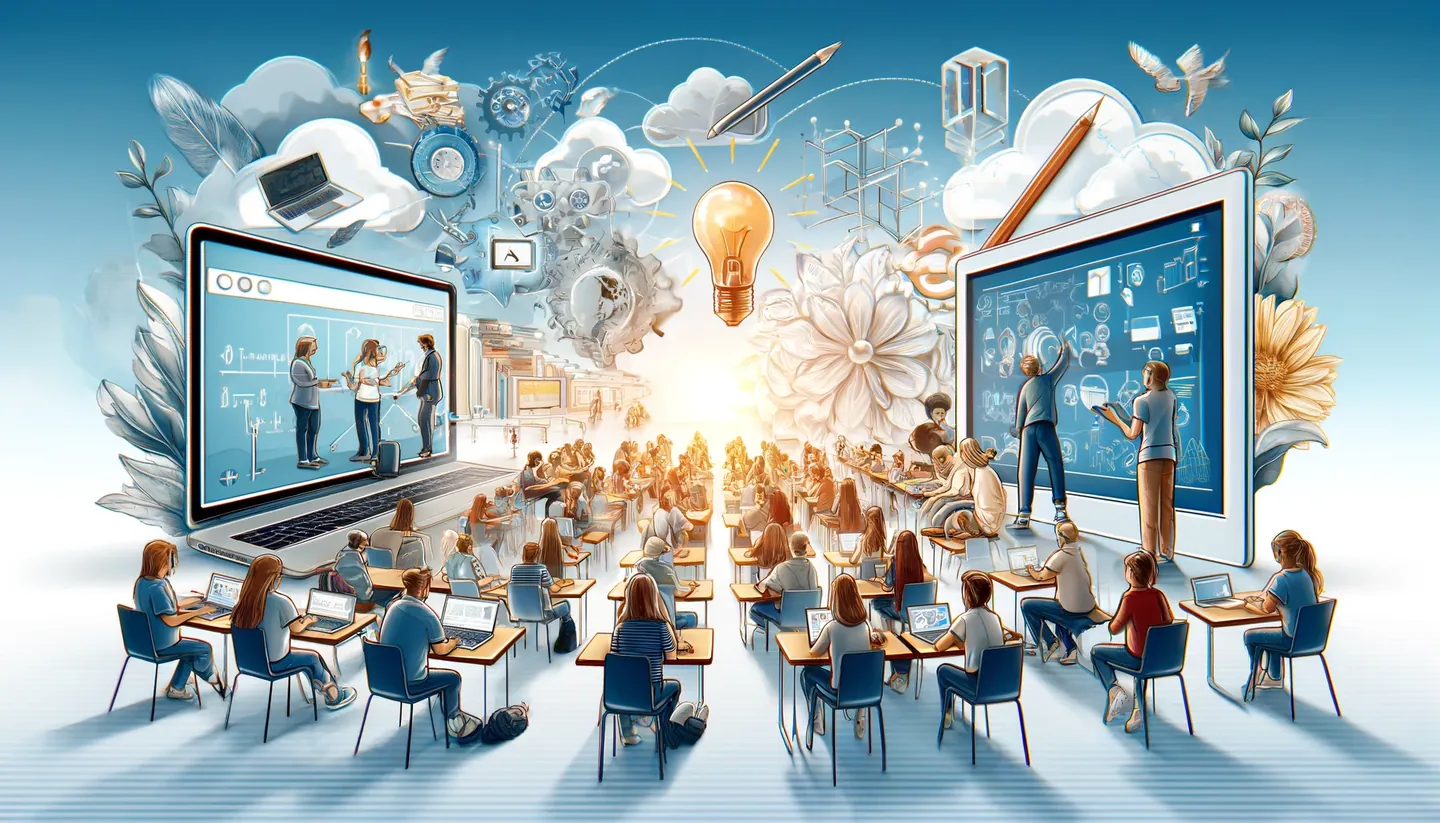
A defining aspect of modern education is its accessibility. Advances in information technology and online learning have made education available to nearly everyone, regardless of geographic location or social status. This has opened new avenues for personal development and career growth, making education more adaptable to individual needs.
Another crucial element of contemporary education is the focus on developing future skills. Alongside traditional subjects like mathematics, literature, and science, educational programs increasingly include courses on digital skills, communication, critical thinking, and problem-solving. This reflects the evolving demands of the labor market and helps students prepare for a rapidly changing world.
Modern education also emphasizes active learning methods and practical experiences. Instead of relying solely on textbooks and lectures, there is a growing focus on project work, internships, research, and collaborative learning. This approach fosters a deeper understanding of material and the development of practical skills needed in the workforce.
Finally, contemporary education is increasingly oriented towards personal development and civic engagement. It aims to cultivate not only professionals but also active citizens capable of critical thinking, informed decision-making, and participation in public life. This includes fostering social responsibility, ethical values, and a culture of peaceful coexistence.
Conclusion
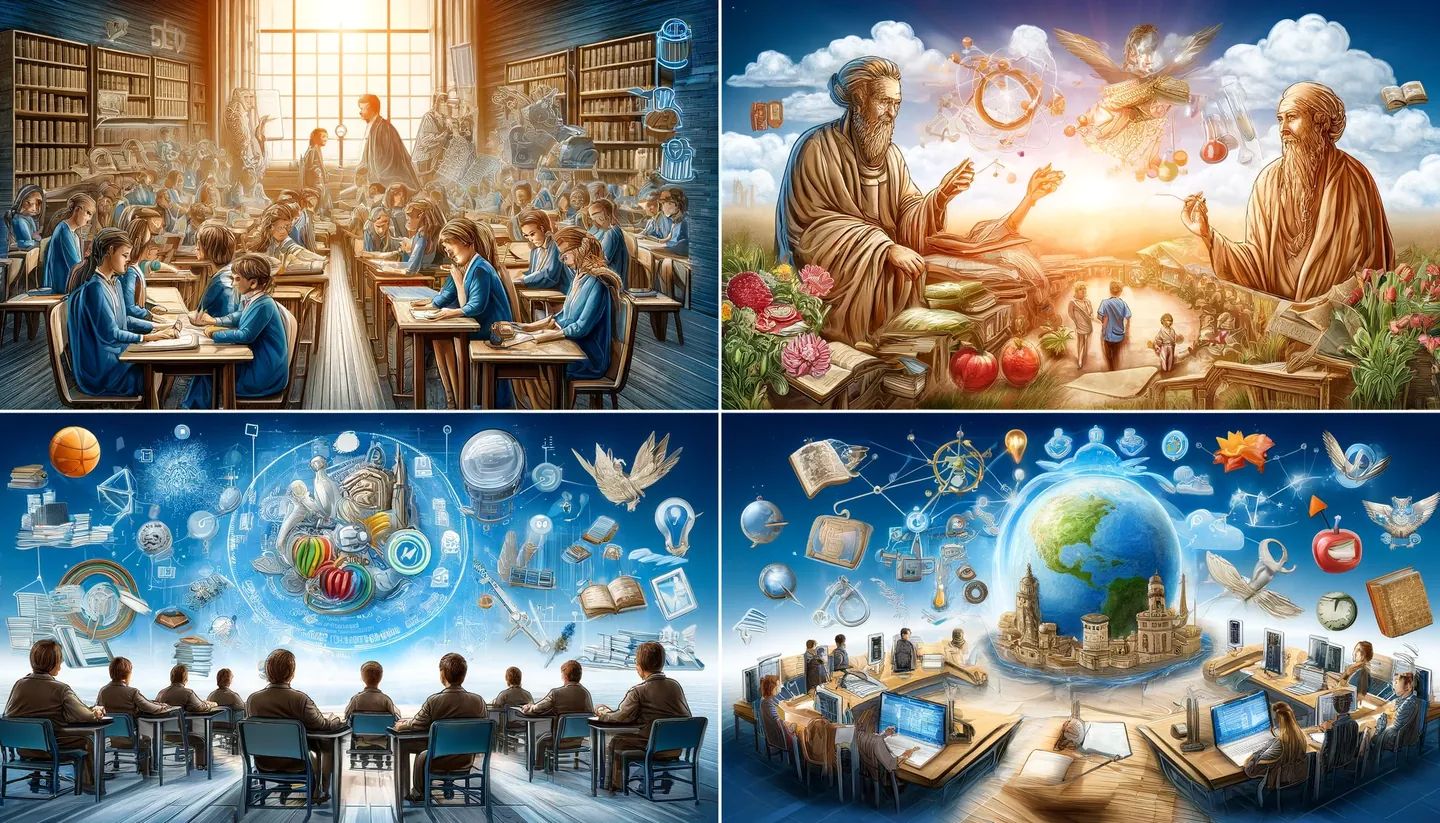
The history of education mirrors the evolution of human society and its pursuit of knowledge. Understanding this history provides a deeper appreciation of modern educational systems and helps predict their future development.
